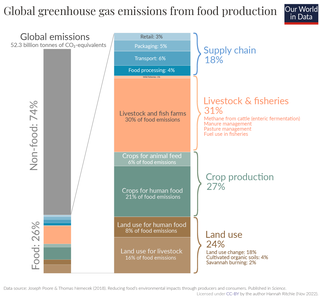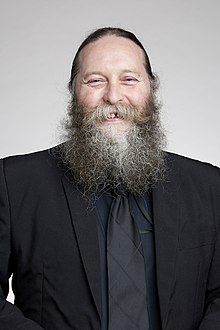Keith Peter Shine FRS is the Regius Professor of Meteorology and Climate Science at the University of Reading. He is the first holder of this post, which was awarded to the university by Queen Elizabeth II to mark her Diamond Jubilee.

Nicholas Herbert Stern, Baron Stern of Brentford,, is a British economist, banker, and academic. He is the IG Patel Professor of Economics and Government and Chair of the Grantham Research Institute on Climate Change and the Environment at the London School of Economics (LSE), and 2010 Professor of Collège de France. He was President of the British Academy from 2013 to 2017, and was elected Fellow of the Royal Society in 2014.

Jonathan Michael Gregory is a climate modeller working on mechanisms of global and large-scale change in climate and sea level on multidecadal and longer timescales at the Met Office and the University of Reading.

Climate change mitigation (or decarbonisation) is action to limit the greenhouse gases in the atmosphere that cause climate change. Climate change mitigation actions include conserving energy and replacing fossil fuels with clean energy sources. Secondary mitigation strategies include changes to land use and removing carbon dioxide (CO2) from the atmosphere. Current climate change mitigation policies are insufficient as they would still result in global warming of about 2.7 °C by 2100, significantly above the 2015 Paris Agreement's goal of limiting global warming to below 2 °C.

Environmental vegetarianism is the practice of vegetarianism that is motivated by the desire to create a sustainable diet, which avoids the negative environmental impact of meat production. Livestock as a whole is estimated to be responsible for around 15% of global greenhouse gas emissions. As a result, significant reduction in meat consumption has been advocated by, among others, the Intergovernmental Panel on Climate Change in their 2019 special report and as part of the 2017 World Scientists' Warning to Humanity.

Land use, land-use change, and forestry (LULUCF), also referred to as Forestry and other land use (FOLU) or Agriculture, Forestry and Other Land Use (AFOLU), is defined as a "greenhouse gas inventory sector that covers emissions and removals of greenhouse gases resulting from direct human-induced land use such as settlements and commercial uses, land-use change, and forestry activities."
David S. Reay is a climate change scientist, author, and professor of carbon management and education at the University of Edinburgh. He serves as co-chair of the Just Transition Commission, and served as executive director of the Edinburgh Climate Change Institute and policy director of ClimateXChange between January 2020 and January 2024.
The environmental impact of agriculture is the effect that different farming practices have on the ecosystems around them, and how those effects can be traced back to those practices. The environmental impact of agriculture varies widely based on practices employed by farmers and by the scale of practice. Farming communities that try to reduce environmental impacts through modifying their practices will adopt sustainable agriculture practices. The negative impact of agriculture is an old issue that remains a concern even as experts design innovative means to reduce destruction and enhance eco-efficiency. Animal agriculture practices tend to be more environmentally destructive than agricultural practices focused on fruits, vegetables and other biomass. The emissions of ammonia from cattle waste continue to raise concerns over environmental pollution.

Joanna Dorothy Haigh is a British physicist and academic. Before her retirement in 2019 she was Professor of Atmospheric Physics at Imperial College London, and co-director of the Grantham Institute – Climate Change and Environment. She served as head of the department of physics at Imperial College London. She is a Fellow of the Royal Society (FRS), and a served as president of the Royal Meteorological Society.
Sir Alan Walter Rudge is a British electrical engineer. He was Chairman of the ERA Foundation from its formation until December 2012, after which he was appointed as the Foundation's President. In 2012 he also stepped down as Chairman of the Board of Management of the Royal Commission for the Exhibition of 1851, a position he had held for eleven years; he had succeeded Sir Denis Rooke and was himself succeeded by Bernard Taylor.

Climate-friendly gardening is a form of gardening that can reduce emissions of greenhouse gases from gardens and encourage the absorption of carbon dioxide by soils and plants in order to aid the reduction of global warming. To be a climate-friendly gardener means considering both what happens in a garden and the materials brought into it as well as the impact they have on land use and climate. It can also include garden features or activities in the garden that help to reduce greenhouse gas emissions through processes not directly related to gardening.

David John Beerling FLSW is the Director of the Leverhulme Centre for Climate change mitigation and Sorby Professor of Natural Sciences in the Department of Animal and Plant Sciences (APS) at the University of Sheffield, UK. He is also Editor-in-Chief of the Royal Society journal Biology Letters.

Wenfei Fan is a Chinese-British computer scientist and professor of web data management at the University of Edinburgh. His research investigates database theory and database systems.

Gabriele Clarissa Hegerl is a German climatologist. She is a professor of climate system science at the University of Edinburgh School of GeoSciences. Prior to 2007 she held research positions at Texas A&M University and at Duke University's Nicholas School of the Environment, during which time she was a co-ordinating lead author for the Intergovernmental Panel on Climate Change (IPCC) Fourth and Fifth Assessment Report.

Sir James Ferguson "Jim" Skea CBE FRSE is a British academic. He is currently Chair of the Intergovernmental Panel on Climate Change (IPCC) for its seventh assessment cycle, and a Professor of Sustainable Energy at Imperial College London. Before being elected as chair, Skea was co-chair of Working Group III of the IPCC. He was a founding member of the UK Government's Committee on Climate Change and currently chairs Scotland's Just Transition Commission. He was a co-author of the IPCC 2018 Special Report on Global Warming of 1.5 °C. In July 2023, Skea was elected as Chair of the IPCC.

Paul Gordon Jarvis was a leading ecologist and Professor of Forestry and Natural Resources at the University of Edinburgh from 1975 to 2001.

Tracy Palmer is a British microbiologist who is a professor of microbiology in the Biosciences Institute at Newcastle University in Tyne & Wear, England. She is known for her work on the twin-arginine translocation (Tat) pathway.

Raymond L. Desjardins is a senior research scientist at Agriculture and Agri-Food Canada (AAFC) in the Agrienvironment Division of the Ottawa Research and Development Centre. His areas of expertise include agricultural meteorology, micrometeorology, air quality, and climate change. He is a Fellow of the Royal Society of Canada, was co-recipient of the Nobel Peace Prize awarded to the Intergovernmental Panel on Climate Change (IPCC) in 2007, and in 2018 was appointed as Member of the Order of Canada for his research in agrometeorology and for his innovative devices to quantify greenhouse gas (GHG) emissions.

The amount of greenhouse gas emissions from agriculture is significant: The agriculture, forestry and land use sectors contribute between 13% and 21% of global greenhouse gas emissions. Emissions come from direct greenhouse gas emissions. And from indirect emissions. With regards to direct emissions, nitrous oxide and methane makeup over half of total greenhouse gas emissions from agriculture. Indirect emissions on the other hand come from the conversion of non-agricultural land such as forests into agricultural land. Furthermore, there is also fossil fuel consumption for transport and fertilizer production. For example, the manufacture and use of nitrogen fertilizer contributes around 5% of all global greenhouse gas emissions. Livestock farming is a major source of greenhouse gas emissions. At the same time, livestock farming is affected by climate change.
Lorna Anne Dawson CBE FRSE is professor and head of soil forensics at the James Hutton Institute, Scotland, who is an Expert witness, Chartered Scientist, and registered expert with the National Crime Agency. She won the award of Soil Forensic Expert Witness of the Year in the Corporate INTL 2021 Global Awards for her forensic research solving major criminal cases, including the World's End pub murders. She had won a special Pride of Britain Award by The Daily Mirror in 2017, for her role in solving long standing criminal cases, and her science communications. She is a Fellow of the Royal Society of Edinburgh, Commander of the Order of the British Empire, with international academic recognition.















